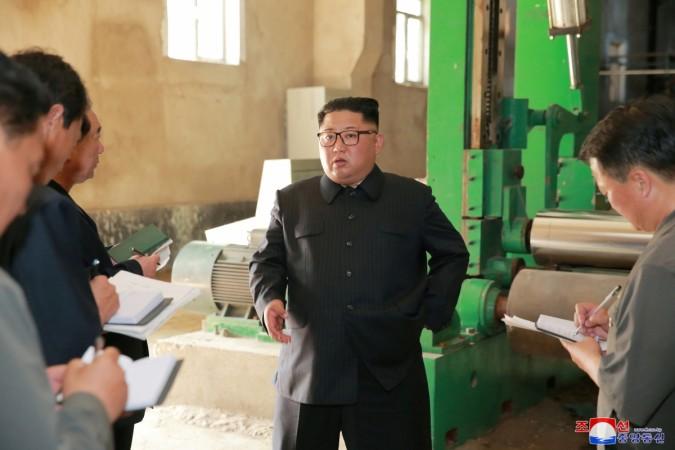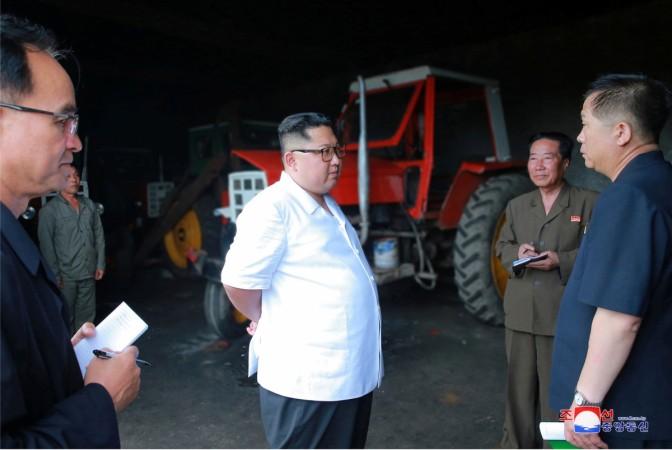
North Korea's economy fell at its sharpest rate in 20 years in 2017, as per estimates from South Korea's Central Bank. This is the first clear sign of the international sanctions having a direct, and painful impact on the country.
North Korea's Gross Domestic Product (GDP) dropped 3.5 percent in 2017, the biggest drop since the 6.5 percent drop in 1997. Much like 1997, the restriction of energy flow into the country is being blamed for the collapse of production.
Agricultural output fell by 1.3 percent, and construction 4.4 percent as per the Bank of Korea (BoK). All this is being attributed to the strict sanctions imposed by Donald Trump in 2017, that forced Kim Jong Un to the negotiating table.
The need for a rapid shift to keep his country afloat has pushed Kim to move away from his nuclear programme, that in 2016 was the sole focus of the regime. Just before the summit with Trump in Singapore, Kim promised to move towards China's "socialist economic construction" method.
The economy, which was highly dependent on coal-intensive industries and manufacturing was hit hard by the sanctions imposed by the UN Security Council in 2017 in response to Kim's increasing missile testing. The economy was hit harder when North Korea's largest trading partner China was also forced to step in and impose sanctions in late 2017.
The BoK used figures compiled by the government and spy agencies to make its economic estimates, North Korea does not officially release its economic data. Further estimates indicate that Gross National Income per capita is at 1.46 million won (S$1,760), roughly 4.4 percent of South Korea's. The BoK also estimates that North Korean exports fell by 37.2 percent citing data from the Korea Trade-Investment Promotion Agency.

In response, Kim has visited several manufacturing industries earlier this week, often lambasting officials over delayed construction projects or lackluster modernisation of production lines, according to state media. The latest criticisms appear to attempt to spur economic development nationwide - and shift blame to bureaucrats where progress has lagged, experts say.
With nuclear talks with Washington underway, Kim may also want to dispel suspicion about denuclearisation by highlighting his zeal for economic development. Kim made a broad commitment at the Singapore summit to "work toward denuclearization," but fell short of details on how or when he would dismantle the nuclear programmes.
Kim's recent tour to the northeast was the first full-fledged provincial visit in more than a year and illustrated his changing priorities, said Hong Min, a fellow at the state-run Korea Institute for National Unification in Seoul.










!['Had denied Housefull franchise as they wanted me to wear a bikini': Tia Bajpai on turning down bold scripts [Exclusive]](https://data1.ibtimes.co.in/en/full/806605/had-denied-housefull-franchise-they-wanted-me-wear-bikini-tia-bajpai-turning-down-bold.png?w=220&h=138)



